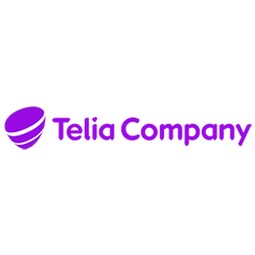下载PDF
Safety First with Folksam

技术
- 功能应用 - 远程监控系统
- 基础设施即服务 (IaaS) - 其他
适用行业
- 金融与保险
适用功能
- 商业运营
用例
- 基于使用的保险
挑战
汽车保险市场的竞争力正在推动 UBI 的增长,作为保险公司区分其客户主张和提高运营效率的一种手段。保险模型——基于使用的保险(“UBI”)——为保险公司提供了更有效的市场细分和准确的风险评估和定价的可能性。保险公司需要物联网解决方案来收集数据和进行绩效分析
客户
民俗
关于客户
Folksam 是瑞典最大的保险公司之一。 Folksam 完全由其客户所有,不断致力于研究和开发,以寻找新的方法来支持其客户在道路上安全驾驶,并最终挽救生命。
解决方案
通过 Telia Sense,Folksam 现在正在瑞典推出最全面的基于用户的保险解决方案,为新车和旧车的车主提供。通过评估客户在驾驶时如何与风险互动,保险公司可以提高盈利能力,并引导更安全的驾驶行为并最终挽救生命。保险公司可以提高定价,允许更快地结束索赔,并通过自动化提高损失调整率。
数量效益
相关案例.

Case Study
Real-time In-vehicle Monitoring
The telematic solution provides this vital premium-adjusting information. The solution also helps detect and deter vehicle or trailer theft – as soon as a theft occurs, monitoring personnel can alert the appropriate authorities, providing an exact location.“With more and more insurance companies and major fleet operators interested in monitoring driver behaviour on the grounds of road safety, efficient logistics and costs, the market for this type of device and associated e-business services is growing rapidly within Italy and the rest of Europe,” says Franco.“The insurance companies are especially interested in the pay-per-use and pay-as-you-drive applications while other organisations employ the technology for road user charging.”“One million vehicles in Italy currently carry such devices and forecasts indicate that the European market will increase tenfold by 2014.However, for our technology to work effectively, we needed a highly reliable wireless data network to carry the information between the vehicles and monitoring stations.”

Case Study
Smooth Transition to Energy Savings
The building was equipped with four end-of-life Trane water cooled chillers, located in the basement. Johnson Controls installed four York water cooled centrifugal chillers with unit mounted variable speed drives and a total installed cooling capacity of 6,8 MW. Each chiller has a capacity of 1,6 MW (variable to 1.9MW depending upon condenser water temperatures). Johnson Controls needed to design the equipment in such way that it would fit the dimensional constraints of the existing plant area and plant access route but also the specific performance requirements of the client. Morgan Stanley required the chiller plant to match the building load profile, turn down to match the low load requirement when needed and provide an improvement in the Energy Efficiency Ratio across the entire operating range. Other requirements were a reduction in the chiller noise level to improve the working environment in the plant room and a wide operating envelope coupled with intelligent controls to allow possible variation in both flow rate and temperature. The latter was needed to leverage increased capacity from a reduced number of machines during the different installation phases and allow future enhancement to a variable primary flow system.

Case Study
Automated Pallet Labeling Solution for SPR Packaging
SPR Packaging, an American supplier of packaging solutions, was in search of an automated pallet labeling solution that could meet their immediate and future needs. They aimed to equip their lines with automatic printer applicators, but also required a solution that could interface with their accounting software. The challenge was to find a system that could read a 2D code on pallets at the stretch wrapper, track the pallet, and flag any pallets with unread barcodes for inspection. The pallets could be single or double stacked, and the system needed to be able to differentiate between the two. SPR Packaging sought a system integrator with extensive experience in advanced printing and tracking solutions to provide a complete traceability system.

Case Study
Transforming insurance pricing while improving driver safety
The Internet of Things (IoT) is revolutionizing the car insurance industry on a scale not seen since the introduction of the car itself. For decades, premiums have been calculated using proxy-based risk assessment models and historical data. Today, a growing number of innovative companies such as Quebec-based Industrielle Alliance are moving to usage-based insurance (UBI) models, driven by the advancement of telematics technologies and smart tracking devices.

Case Study
MasterCard Improves Customer Experience Through Self-Service Data Prep
Derek Madison, Leader of Business Financial Support at MasterCard, oversees the validation of transactions and cash between two systems, whether they’re MasterCard owned or not. He was charged with identifying new ways to increase efficiency and improve MasterCard processes. At the outset, the 13-person team had to manually reconcile system interfaces using reports that resided on the company’s mainframe. Their first order of business each day was to print 20-30 individual, multi-page reports. Using a ruler to keep their place within each report, they would then hand-key the relevant data, line by line, into Excel for validation. “We’re talking about a task that took 40-80 hours each week,” recalls Madison, “As a growing company with rapidly expanding product offerings, we had to find a better way to prepare this data for analysis.”

Case Study
Detecting and Reducing Cost of Fraud Rings
A leading insurer wanted to reduce its multi-billion dollar expenditures on auto insurance claims, which is its largest annual expense. Currently, the company avoids paying out only about 0.33% of the predicted 10% of fraudulent claims. The insurer uses both manual (60-65%) and automated systems (30-35%) to flag questionable claims. These claims are passed on to the investigative case managers who read adjuster and other member notes, explore the fraud watch list, and search the web. Their existing approach cannot easily discover fraud rings or, more importantly, collusion among other fraud rings. Moreover, the investigative team typically decides in 30 days or less on whether to pay or deny a claim. This is due to heavy caseloads and expectations for a quick turnaround in claim processing in order to keep customers satisfied.





